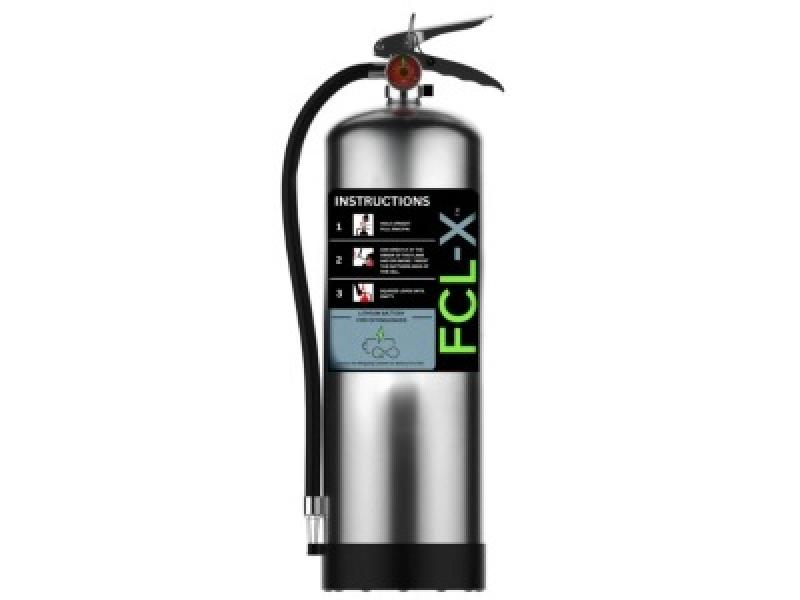
Lyric Cycle’s newest e-bike, the Lyric Graffiti. (Courtesy Lyric Cycle)
Electric vehicle startup Lyric Cycles Inc. is moving into new e-bike territory with the Lyric Graffiti, which the company considers an e-bike and motorcycle hybrid.
Its features include a 2,500 watt hub-drive motor, dual batteries and regenerative brakes, with a top speed of 61 kms per hour. According to a release, a 175 pound rider at 24 to 32 kms per hour with pedal assist can expect 128 to 160 kms of range. The e-bike’s direct-drive motor reaches 4,700 peak watts, which the company says can power the bike up hills with the throttle alone.
“There’s definitely a lot of people taking available products and just kind of slapping a label on them and saying, ‘Here’s my company, and off we go.’ We believe that that’s not necessarily the long-term vision for a company,” said Andrew Lester, Lyric’s co-founder and the co-designer of the Graffiti.
“As soon as you add electric motors to something, the requirement for your standard bicycle, the way it’s always been designed is for pedaling dynamics . . . Once you put motors on these things, that’s all out the window. We can actually start designing around the way that motorcycles have always been designed.”
The two-seater e-bike comes with a rear rack for storage. Set to begin shipping in September, it will cost $2,799 for the single battery version and $3,199 for the dual battery. Both versions can take between four to five hours to fully recharge.
Lyric, which designs, engineers and tests its bikes at its Squamish, B.C. headquarters, was founded by Lester and Andi Caruso in 2020.
Development of the Graffiti
Lester said the Graffiti was designed for the “urban commuter” who doesn’t want to own a car, but still wants to be able to visit friends or run errands as they would with a car.
“It’s perfect for those situations in which municipalities still have not really done a great job of creating bike lanes that don’t run out on you,” Lester said. “You’re finding the bike lane, you’re totally protected and then all of a sudden, you’re shuttled into traffic, right?”
At the same time, Caruso explained, the range of potential customers has been expanding, those aged anywhere from 18 to over 70. She mentioned a number of live Facebook and YouTube sessions during which they’ve been able to get customer feedback, hoping to build that reception into further iterations of the Graffiti.
Most components for the e-bike are made in Asia — in particular the electrical parts. The Squamish facility is where the prototyping, assembly, testing and shipping takes place.
Lester highlighted the decision to remove the traditional style of bicycle chain, and as a consequence the need for lubrication. Instead, the ‘chain’ is carbon, while the e-bike itself is comprised of 6061 aluminum alloy.
Lyric’s method of ordering each individual part to be assembled in Squamish is the “more difficult” choice according to Lester.
“We made that all more complicated by saying, ‘Let’s take individual pieces and put them all together and design our own thing, get our own things manufactured and add multiple logistics challenges,’ ” he said.
The highest interest in the e-bikes has come from Western Canada, as well as Toronto and Quebec. In the U.S., many of Lyric’s customers are hailing from Oregon, California, Texas and Arizona thanks to their more suitable year-round climates.
Lyric’s future
Caruso, who is based in Alberta, first met Lester after Caruso did some consulting work at Lester’s previous job. Both co-founders have expressed interest in moving the operations of the company to Alberta, after the roads and railroads in B.C. were washed out last December.
“One of the things we’ve been talking about recently is moving production to Alberta eliminates all of (those logistics issues) and we really want to be a made in Canada product,” Caruso said. “We’re exploring opportunities to do that right now.”
The company has also designed the Heartbreaker and the Voodoo, which come in two editions.
Lyric also has Canada’s 2035 goal of banning diesel passenger vehicles on its mind. In fact, Lester believes the company has come to market at the perfect time, thanks to the country-wide electric vehicle push as well as the government support and rebates that come with it.
He also is focused on expanding the use of Lyric’s e-bikes in the commercial space, such as in last-mile delivery.
“I would like us to continue to be building bikes that sit in this nice in-between spot between bicycles, motorcycles and actually moving even toward the development of full motorcycles as well,” Lester said.










